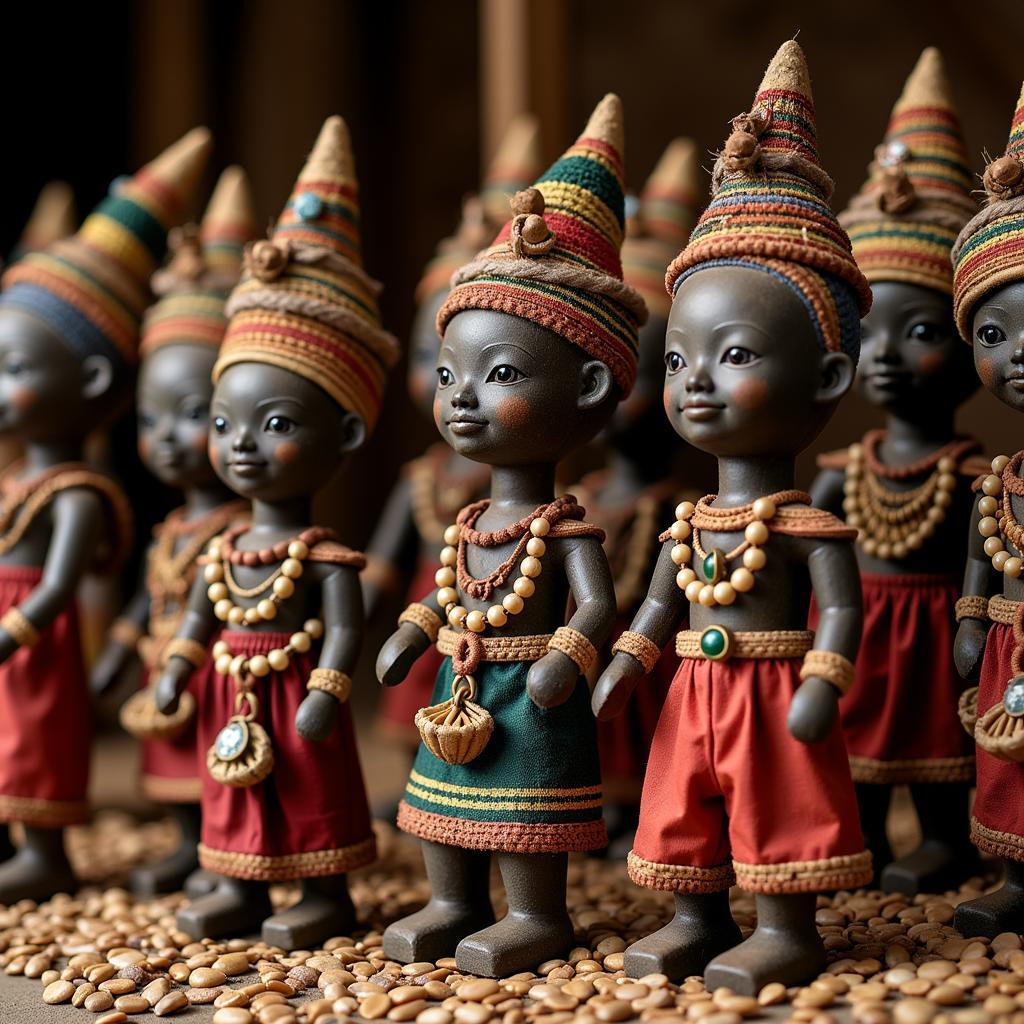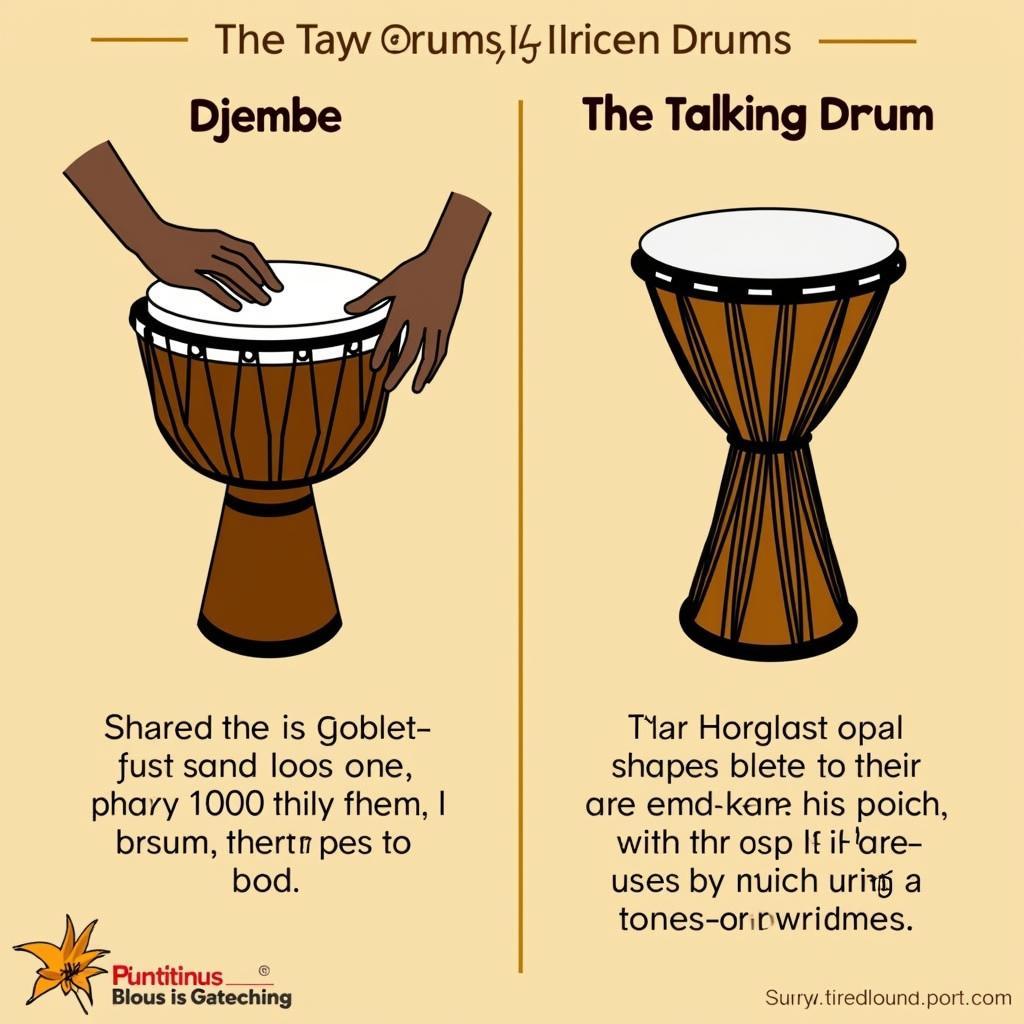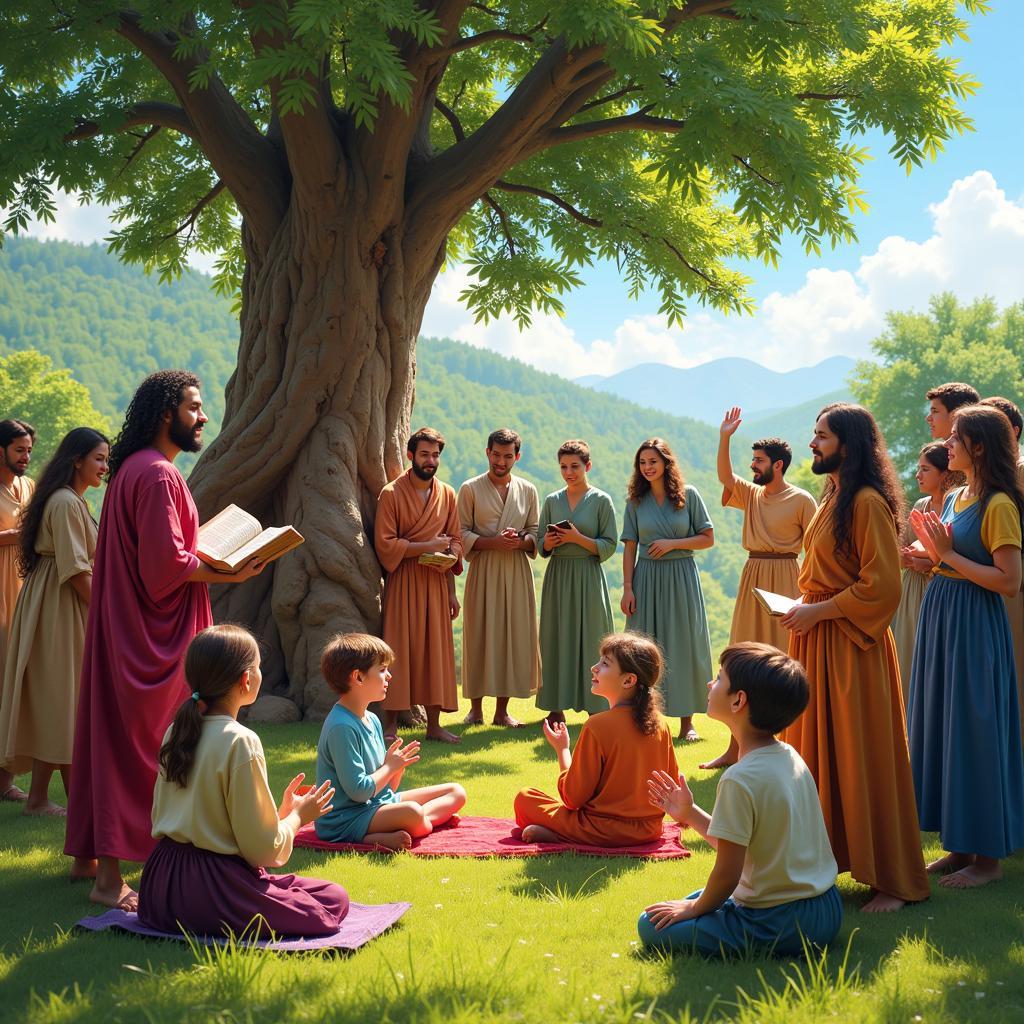Exploring African American Cultural Games
African American Cultural Games offer a fascinating glimpse into the history, creativity, and resilience of Black communities in America. These games, passed down through generations, are more than just pastimes; they are vessels of cultural memory, fostering a sense of community, teaching life lessons, and preserving traditions. This article delves into the rich world of African American cultural games, exploring their origins, significance, and enduring impact.
The Significance of Games in African American Culture
Games have always played a vital role in African American communities, serving as a source of entertainment, education, and social bonding. During times of hardship and segregation, these games offered a refuge, a space for joy, competition, and shared experiences. They provided opportunities to develop skills, learn about their heritage, and build resilience in the face of adversity.
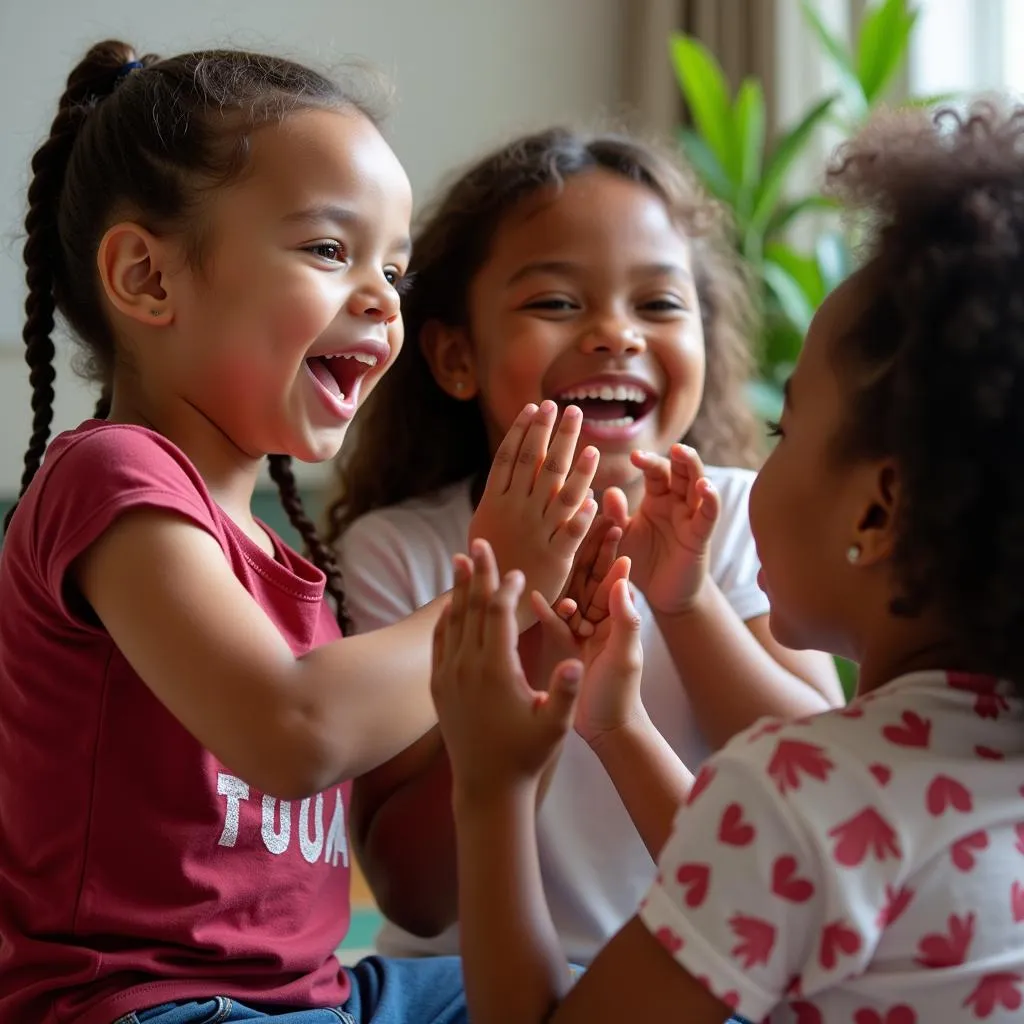 Children Playing Hand-Clapping Game
Children Playing Hand-Clapping Game
Tracing the Roots: African Origins and Influences
Many African American cultural games trace their roots back to Africa, reflecting the traditions and practices brought over during the transatlantic slave trade. These games often feature elements of storytelling, music, dance, and strategy, showcasing the rich cultural heritage of the African diaspora. For example, games like “Mancala,” a strategy game played with seeds or stones, can be traced back to ancient Egypt and remains popular in many African countries today.
Popular African American Cultural Games
Hand-Clapping Games
Hand-clapping games, often accompanied by rhythmic chants and songs, are a beloved pastime for children. These games, such as “Miss Mary Mack” and “Down Down Baby,” are more than just fun and games. They improve coordination, rhythm, and memory while also teaching children about cooperation and teamwork. The rhythmic clapping and chanting also connect to African musical traditions, demonstrating the enduring influence of African culture.
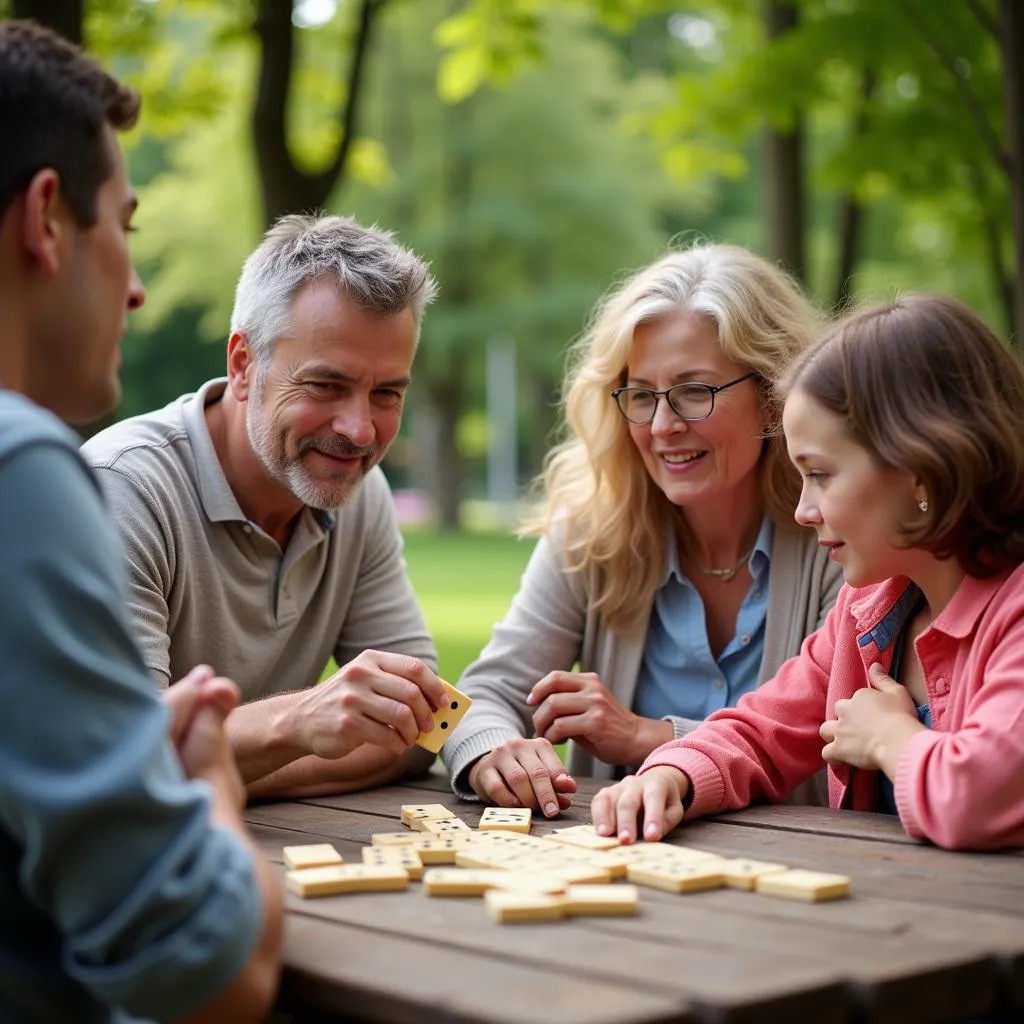 People Playing Dominoes
People Playing Dominoes
Dominoes
Dominoes, a game of strategy and skill, holds a special place in many African American communities. Played on street corners, in parks, and at family gatherings, dominoes transcends age and background, bringing people together through friendly competition and lively conversation.
Double Dutch
Double Dutch, a game involving jumping rope with two long ropes swung in opposite directions, originated in Black communities in New York City. This challenging and athletic game requires coordination, timing, and a sense of rhythm. Double Dutch has evolved into a competitive sport, with teams showcasing their skills and creativity through intricate jump rope routines.
The Enduring Legacy of African American Cultural Games
African American cultural games continue to thrive today, passed down through generations and adapted to contemporary settings. They are celebrated in schools, community centers, and cultural events, ensuring that these traditions remain alive and vibrant.
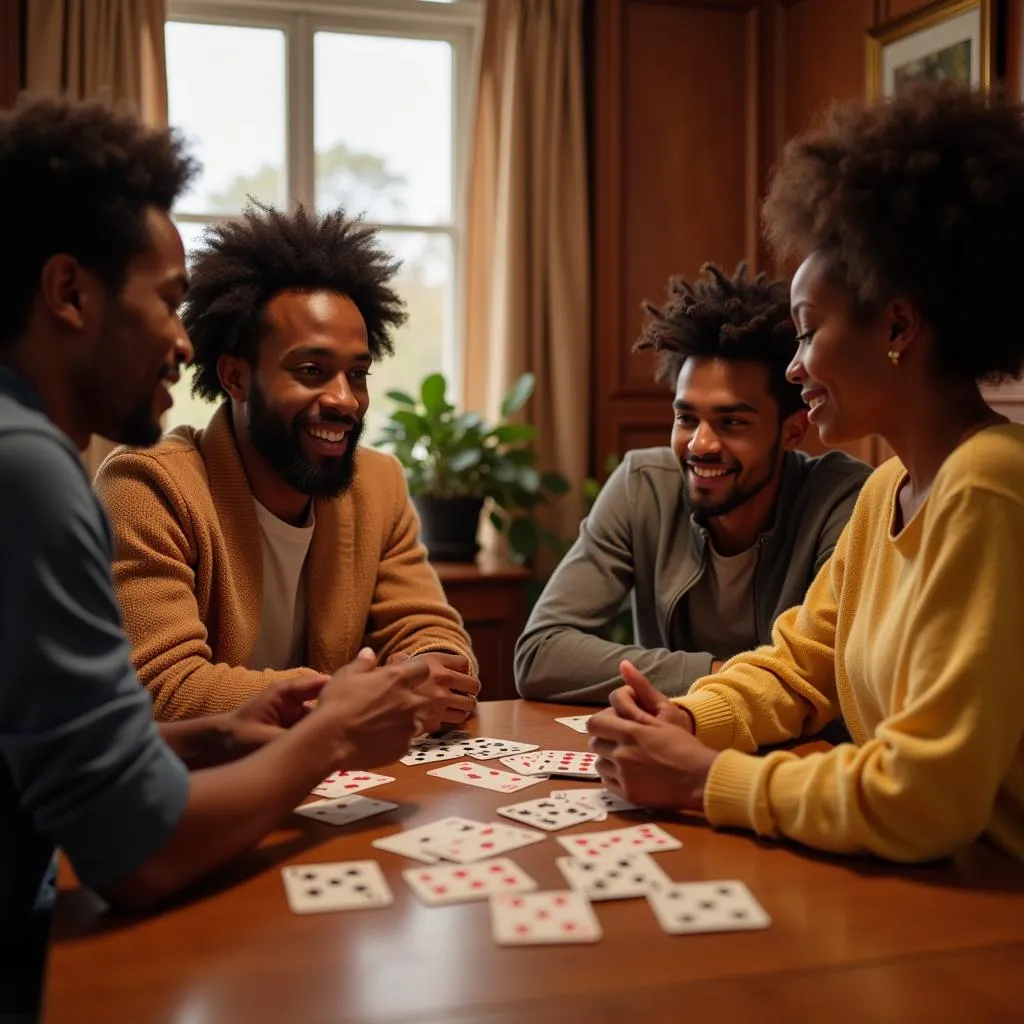 Family Playing Cards
Family Playing Cards
Conclusion
African American cultural games offer a captivating window into the rich history, resilience, and creativity of Black communities in America. From hand-clapping games to dominoes and Double Dutch, these games continue to entertain, educate, and foster a sense of community, preserving cultural heritage and passing down traditions for generations to come. As we engage with these games, we honor the legacy of those who came before us and celebrate the enduring power of play and cultural expression.
FAQs about African American Cultural Games
1. What are some other examples of African American cultural games?
Other popular games include Spades, Bid Whist, Hopscotch, and Red Rover.
2. Are these games only played by African Americans?
While these games originated in African American communities, they are enjoyed by people of all backgrounds.
3. Where can I learn more about the history of these games?
Many books, documentaries, and online resources explore the history and significance of African American cultural games.
4. Are there any organizations dedicated to preserving these games?
Yes, organizations like the National Double Dutch League work to preserve and celebrate these cultural traditions.
5. How can I help keep these traditions alive?
You can learn about and teach these games to others, participate in community events, and support organizations dedicated to cultural preservation.
Need Help? Contact Us
For any assistance or inquiries about African American culture or other topics, feel free to reach out to us:
Phone Number: +255768904061
Email: kaka.mag@gmail.com
Address: Mbarali DC Mawindi, Kangaga, Tanzania.
Our dedicated customer support team is available 24/7 to assist you.
